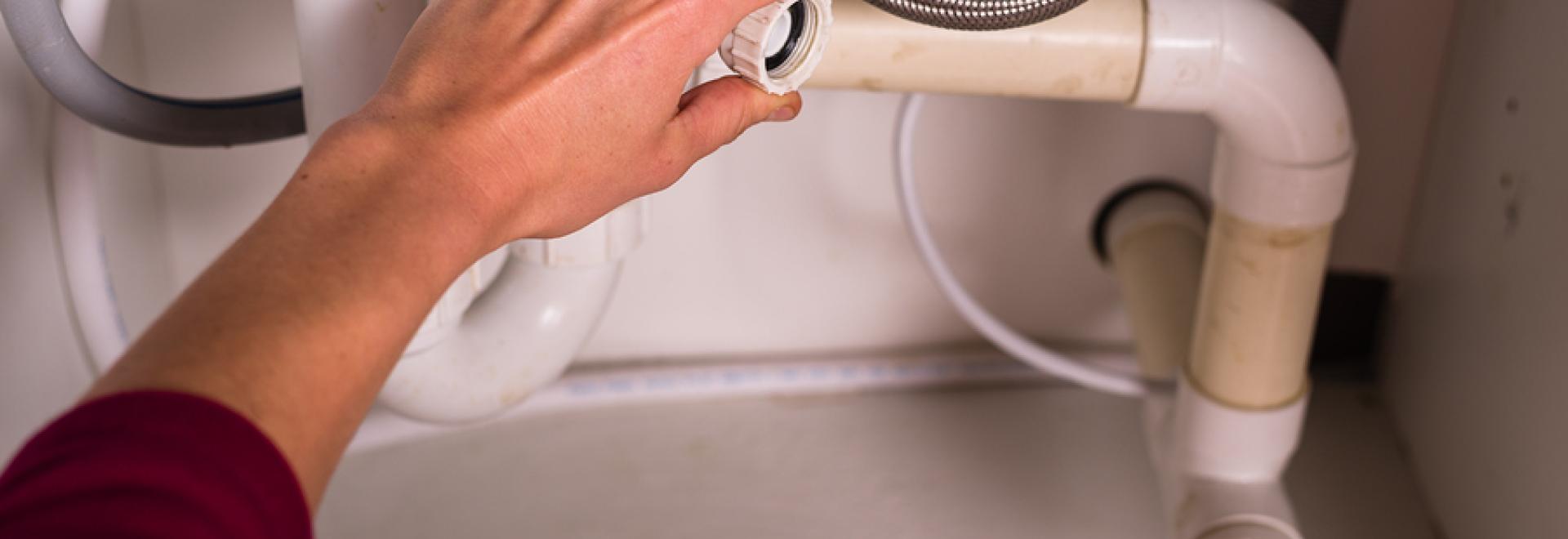
Nobody wants to call the plumber for repairs. Especially when things go wrong unexpectedly, or if there is a plumbing emergency, the thought of unanticipated costs and headaches can make for a bad day gone worse.
At Pippin Brothers, we’ve seen our fair share of plumbing emergencies. Of course not all instances can be avoided, but some can certainly be prevented.
We’ve listed several of the most common problem areas we see on a plumbing call as well as tips on how to keep them from happening to you.
Clogged Toilet. Most clogs are a result of foreign objects. Packaging on many products can be very misleading. Despite what you might read or hear, the only product that should be flushed down your toilet is toilet paper. Sanitary napkins, cotton balls, facial cleansing pads, cleaning wipes, cigarette butts and other products do not break down adequately and should be thrown in a trashcan. In the event of an overflow, know how to shut off the water supply to the toilet until the plumber can arrive.
Clogged Kitchen Sink. Never pour cooking oil, hamburger grease or other fats down your kitchen drain. As they cool, the grease solidifies and sticks to your pipes. After time, this can cause a serious blockage that can be difficult to eliminate without calling for a plumber. Instead, drain grease and cooking oils into a separate receptacle and dispose of it in the garbage. It’s also good practice to use a strainer in your sink to keep food waste, jewelry and other items from washing down the drain and becoming stuck. Regularly flushing your kitchen sink with boiling water can help loosen any grease or food matter stuck inside the pipes.
Clogged Shower or Bathroom Sink Drain. Hair and soap residue is the enemy when it comes to the drains in your bathroom. Serious blockages can result if you are negligent with these drains. In your shower, consider using a strainer to trap hair, soap and other debris before it goes down the drain. If you have a clogged drain and store-bought drain cleaners don’t help, call a plumber for help to avoid damage to the drain.
Broken Garbage Disposal. Avoid putting fatty meats or stringy materials down the disposal. Poultry skins, celery, eggshells, and grease are all items to avoid. Before you put food in the garbage disposal, make sure to turn it on and run water while using it. To keep your disposal from jamming, consider grinding a cupful of ice cubes every so often. Doing so will help to loosen any food still stuck inside the disposal.
Water Heater Quits. Water heaters can last a long time if maintained properly. Especially if your home has hard water, it’s important to have your water heater drained to remove sediment that can collect at the bottom of the tank. This buildup can reduce your water heater’s efficiency and can also clog your water lines.
Washing Machine Floods. Most washing machines come with rubber connection hoses. These hoses can dry out, burst and literately flood your home if left unnoticed for too long. To keep this from happening, it’s best to replace the hoses with a steel braided model. Whether it is the water supply hose or something else, sometimes washers can overflow. As a precautionary measure, make sure your washing machine is sitting in an overflow tray. Consider contacting a plumber to help you install a water shutoff valve for the washer.
When combined with regular full point plumbing inspections, cautionary measures can help you reduce the chances you’ll be faced with an unexpected plumbing emergency.
Pippin Brothers is Lawton’s plumbing expert. Do you have a plumbing question? Ask one of our experts online. Need to schedule a repair? Contact us now!